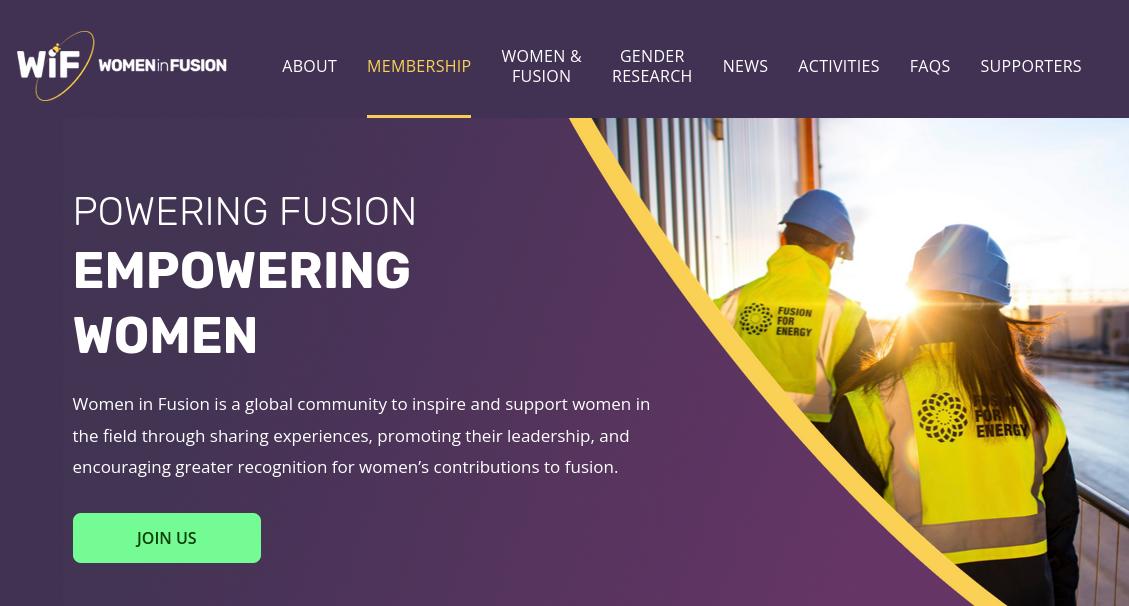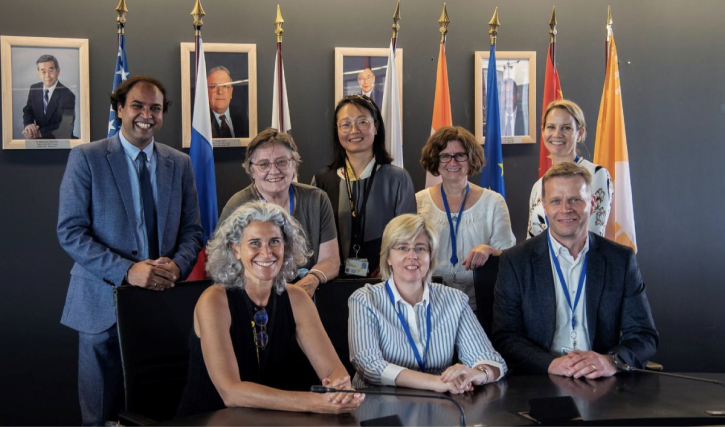
Women in Fusion (WiF) is a global platform to inspire and support women in the Fusion field through sharing experiences, promoting leadership, and encouraging greater recognition for women’s contributions to Fusion. Their website, launched earlier this summer, offers information about the platform and participants of all genders are welcome to join. The website provides community forums for discussion which are open to all registered users as well as information about gender discrepancies in the Fusion workforce.
WiF was established in 2021 following a successful webinar at the Fusion Energy Conference (FEC2020) which clearly showed the need to increase the representation of women in Fusion science and research. The organization is the fruit of a collaboration between IAEA, ITER, Fusion for Energy, General Atomics and EUROfusion. The first WiF event is scheduled for 2023.

Currently, the participation of women in Fusion energy mirrors the overall challenges of gender equity in STEM (Science, Technology, Engineering and Mathematics). Despite the strong participation of women studying STEM disciplines, when entering the professional arena women often face obstacles that block their paths to career advancement. Among others, this is leading to loss of talent via resignations from employment and plateauing of their activities below their full potential.
The Chair of WiF, Dr. Sehila M. Gonzalez de Vicente, a senior expert in Fusion as Nuclear Fusion Physicist at IAEA, has been actively addressing the lack of gender parity in Fusion for many years, leading webinars at the IAEA and speaking regularly about the topic. As she explains, “Women must play an active role in the development of new technologies to help society and to create the path that needs to be paved for women’s leadership.”

Despite the recent progress, there is a great deal to do in this area also at our research center BSC, which is one of the leading supercomputing centers in the world. While none of the nine directors of the center is a woman, the situation with the Governance Boards has improved slightly over the past years. However, still today, only about 25% of our center’s workforce are female. Moreover, among the research group leaders only about 20% are women, including the leader of our Fusion group, ICREA Prof. Dr. Mervi Mantsinen. The BSC gender and diversity plan to improve this situation is available here.
Women in Fusion is active on Twitter, Instagram, Facebook, and LinkedIn.
Source: EUROfusion news

1 thought on “A new global network for gender equity in Fusion”